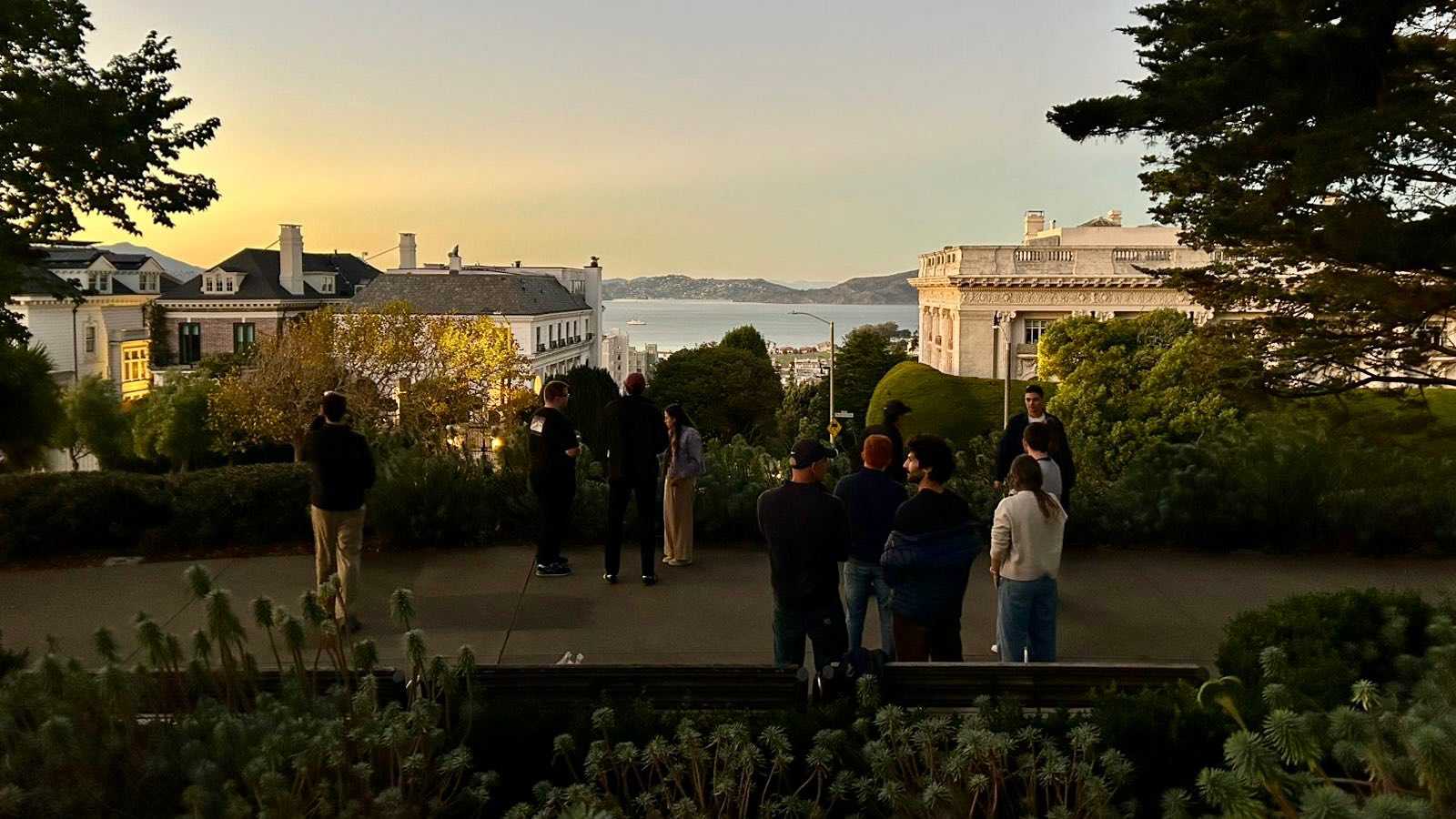
The Latitud Fellowship is our flagship program for pre-founders born in LatAm, but conquering the whole wide world. You go from first idea to first product fast ( we mean less than 2 months).
The last week of our fellowship is dedicated to connecting the dots between LatAm and San Francisco. Community meets clarity in the form of playbooks shared by top founders and VCs.
We’ve just finished our week in San Francisco for our batch of H2/2025. Check out our calendar + a teaser of what we’re seeing right now for the startup ecosystem.
We kicked it off at Tribe Capital, the $2.2B AUM venture capital firm that’s focused on harnessing data science and AI. We later met with Antoine Colaço from Valor Capital Group, a cross-border venture fund bridging the US, Latin American, and global technology markets.
After lunch, we switched from VCs to technical founders. We chatted with Replit CTO Luis Héctor Chávez, then met Brex founding members in the evening.
The theme of the day was how to actually develop valuable AI – and how you can defend it when you’re out there fundraising.
Day two started with meeting our friend Guillermo Rauch at Vercel – a company with $200M+ in annualized revenue and 1M+ active developers monthly. Guillermo walked our fellows through AI agent development, product-market fit indicators, and his framework for hiring.
That afternoon, we headed to Andreessen Horowitz for their Speedrun program overview. With 17,000+ applications for just 60 slots, the competition is fierce. They shared their three evaluation categories: traction investments, team investments, and X-factor (that unique insight that makes a company stand out in crowded markets).
We wrapped the day at Pear VC, where Mar Hershenson shared a reality check: the market now expects 0 to $3M ARR in 1 year for top-tier Series A rounds.
Our most packed day started by having breakfast with 11x, a company creating digital workers and human results in sales, go-to-market, and revenue operations.
We then went to Y Combinator, where YC partners shared insights from their current batches (for our fellows, a glimpse into their very next stage).
Then we got to OpenAI’s office. While details remain top-secret, we had fascinating debates about the role of big tech versus startups, and foundational models versus applications in the constantly evolving AI landscape.
We closed the day with a series of venture capital chats with DCG, Base10, and Gabriel Vazquez (a16z). Our fellows could ask deeper questions about the signals they look for before writing a check.
Our final day began with a fintech-themed breakfast with Ribbit Capital, followed by a visit to Seed VC firm ANIMO Ventures.
The afternoon featured speed dating with multiple investors, giving our fellows the rapid-fire practice they needed after weeks of learning and iterating.
We ended the cohort the Latitud way: sharing gratituds. In a house gathering, we and all fellows talked about highlights, lowlights, and what we're most grateful for over these two months—a space to digest and reflect on everything we learned.
After four intense days meeting top VCs and operators, several key themes emerged. Here’s a teaser of what we saw about building startups in 2025, going on 2026:
You can do more with AI. But the fundamentals haven't changed. You're still delivering a product to end users, and you still need to prove you're delivering real value.
The winners will be those who focus on being better than humans, not perfect.
The market bar keeps rising — 0 to $3M ARR in 1 year is now expected for top-tier Series A, compared to 0 to $1M in 18 months previously. (International teams targeting US investors already knew they needed stronger traction to overcome credential gaps.)
Speed without direction is just motion. The best founders have the ability to look at data without confirmation bias. They're honest about what's working and what isn't. They don't postpone decisions or avoid hard truths.
This honesty, combined with kindness and clarity of mind, separates the founders who will make it from those who won't. Low energy or pitching what you think investors want to hear versus your actual strategy are instant red flags.
One of the hardest skills for founders? Saying no. With limited resources, every yes to something insignificant is a no to something that matters for your long-term vision.
The best founders understand their compounding loops across distribution, monetization, and engagement. Meet users where they are, whether that's Slack, WhatsApp, or other existing workflows.
They can also prove sustained adoption and retention, not just vanity metrics. If your users are using you more than in the past, that's the signal to follow. The question isn't "What's your NPS?" but rather "How disappointed would users be if we deleted this product?"
Startups can't compete on millionaire compensation packages. Bet on people who haven't done the job before, but spend significant time with them before making decisions.
Look for intelligence (cognition + knowledge + skills), grindset (10-year journey mindset), and integrity (trustworthy, invested, not juggling multiple startups).
We left SF pumped about the LatAm-born talent conquering it. Our fellows went in as pre-founders with ideas. They left as founders with clarity, early validation, and a network that actually picks up the phone.
Stay tuned. New year, new cohort ;)